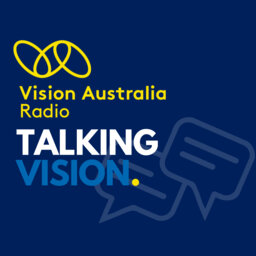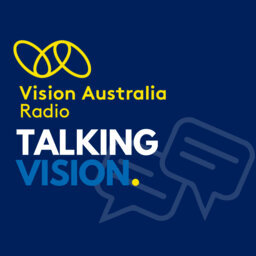Talking Vision 732 Week Beginning 10th of June 2024
Sam is joined this week by Narelle Gatti, a passionate digital access advocate with lived experience of vision loss.
Narelle speaks about how she managed life with her family after the change, her work and podcast addressing accessibility needs, and appearing on Vision Australia Radio program Kintsugi Heroes.
Then after we hear from Narelle, Associate Professor Matthew Butler is back on the program to tell us about a new PhD scholarship opportunity at the Monash Assistive Technology Society centre.
In 1 playlist(s)
Talking Vision by Vision Australia Radio
Vision Australia Radiothon is on now. Donate via www.varadio.org and make a tax deductible donation …Social links
Follow podcast
Recent clips

Talking Vision 820 Week Beginning 23rd of February 2026
27:55

Talking Vision 819 Week Beginning 16th of February 2026
28:59

Talking Vision 818 Week Beginning 9th of February 2026
28:10
 Talking Vision by Vision Australia Radio
Talking Vision by Vision Australia Radio